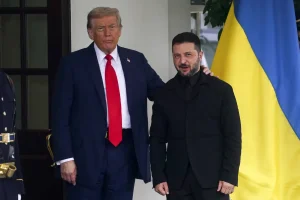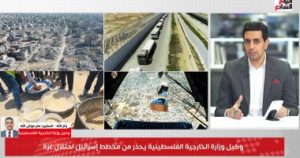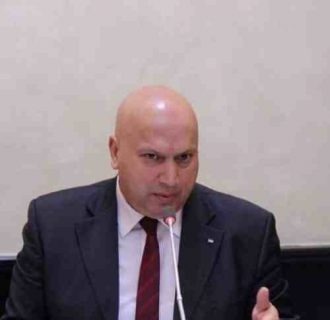International protection for the Palestinian people today emerges as both an urgent humanitarian demand and a political and legal entitlement. With the daily escalation of attacks carried out by the Israeli occupation army and settlers, the entire Palestinian existence is threatened by a systematic policy based on repression, uprooting, and imposing one-sided realities that contradict international law.
These attacks manifest in recurring patterns including: field killings, house demolitions, land confiscations, and destruction of agricultural crops, especially olive trees which are a cornerstone of Palestinian national identity. Villages such as Turmus Ayya, Kafr Malik, Al-Mughayyir, Burqa, Beita, Al-Auja, Masafer Yatta, and others exemplify the scale of systematic targeting ranging from armed settler raids under army protection to organized campaigns uprooting tens of thousands of trees, part of a policy of subjugation and forcing residents into forced displacement. The recent campaign on Al-Mughayyir village is a clear example, where a minor injury to a settler was used as a pretext for a large military operation against the village, its residents, and its trees.
The issue extends beyond villages and rural areas to blatant incursions into city centers during the day and targeting refugee camps, with Jenin, Tulkarm, and Nur Shams camps witnessing constant military raids resulting in casualties, extensive infrastructure destruction, and population evacuations. This is accompanied by a clear effort to undermine UNRWA’s role and prevent it from performing its functions, paving the way to transform camps into “residential suburbs” devoid of their political dimension, implying attempts to erase the refugee issue from the final resolution agenda.
These policies represent a flagrant violation of Israel’s obligations as an occupying power under the Fourth Geneva Conventions (1949), and also breach the Oslo Accords (1993) which stipulated freezing unilateral measures pending a final settlement. Essentially, they express a colonial settlement project aimed at undermining the possibility of establishing an independent Palestinian state and perpetuating Israeli control over the land and people.
In the face of this reality, the demand for international protection for Palestinians becomes a moral and legal duty, transcending the humanitarian dimension to become a political tool to re-internationalize the Palestinian cause and hold Israel accountable internationally. Protection is not limited to deploying monitoring or peacekeeping forces but also includes establishing an effective political and legal umbrella: imposing sanctions on settlements, activating the jurisdiction of the International Criminal Court, and ensuring practical recognition of Palestinians’ right to self-determination.
In this context, the preparatory New York conference on the two-state solution (July 2025) gained special importance, issuing the “New York Declaration” adopted by more than 160 countries calling for the establishment of an independent Palestinian state, halting Israeli unilateral measures, and providing protection for Palestinian civilians. French President Emmanuel Macron announced that his country will officially recognize the State of Palestine next September, a step likely to be followed by other countries such as the UK, Canada, and Australia. The main conference expected in New York in September 2025 is hoped to be a pivotal station to translate these commitments into practical steps, either through expanding recognition of the Palestinian state or by activating international protection mechanisms and holding Israel accountable for its violations.
Thus, the Palestinian cause today stands at a critical crossroads: either the demand for international protection becomes a binding international action program providing Palestinians with minimum security and safety, or it remains a mere rhetorical discourse reproducing the international community’s failure to enforce international law rules on an occupying power that flagrantly disregards them. In this test, not only Palestinians are examined, but also the sincerity of the entire international system and its ability to protect peoples and their fundamental rights.













Recommended for you
Exhibition City Completes About 80% of Preparations for the Damascus International Fair Launch
Talib Al-Rifai Chronicles Kuwaiti Art Heritage in "Doukhi.. Tasaseem Al-Saba"
Unified Admission Applications Start Tuesday with 640 Students to be Accepted in Medicine
Egypt Post: We Have Over 10 Million Customers in Savings Accounts and Offer Daily, Monthly, and Annual Returns
Al-Jaghbeer: The Industrial Sector Leads Economic Growth
His Highness Sheikh Isa bin Salman bin Hamad Al Khalifa Receives the United States Ambassador to the Kingdom of Bahrain